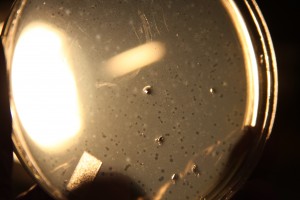“In the year of 1657 I discovered very small living creatures in rain water.”
– Antonie van Leeuwenhoek
Microorganisms are ubiquitous components of natural and human engineered ecosystems, where they drive important processes like elemental cycling and pathogenic disease. The study of microbial biology encompasses techniques from microscopy and cultivation to high throughput genetics and computation, and in environments ranging from the human body to the entire ocean, and conditions from soils in upstate New York to liquids of the International Space Station. Microbiologists have a common interest in understanding the genomic and regulatory adaptations of microorganisms to the habitats in which they live (from within host cells to free-living bacteria in extreme environments), and the impacts of microorganisms on their surroundings. At the same time, because most elemental cycling on the planet is mediated by microorganisms, microbiologists investigate the impacts of habitat perturbations, including global climate change, on microbial function.
The Minor in Microbial Science will allow students with interests in Microbial Science to receive recognition for their studies.
Students graduating with the Microbial Sciences Minor will find careers in areas including but not limited to: graduate studies in microbiology, microbial ecology, virology, industrial and food microbiology, microbial biotechnology, and human and veterinary medicine, leading to positions in academic institutions, government agencies; hospitals and aquaria; industries involving microbial technologies (i.e. biotechnology); food science, including fermentative industries and food safety; and government health agencies.
